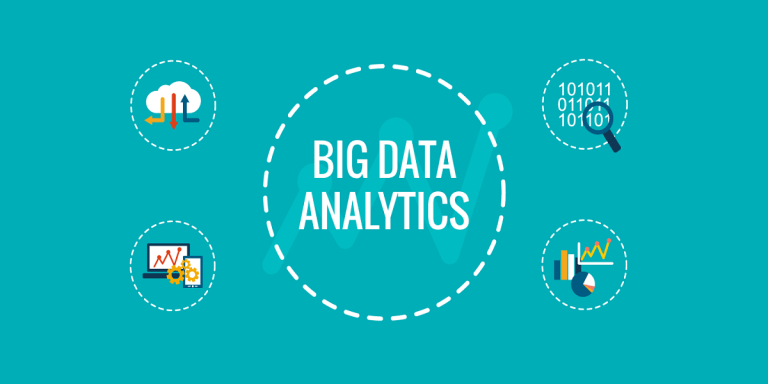Table of Contents
ToggleBig data analytics is, indeed, a big deal as it helps companies make informed decisions. But, not every business has the muscle to handle it in-house. That’s where outsourcing comes into play. In this post, we’ll explain why handing over your data analytics tasks to external experts can be a wise move.
What’s Big Data Exactly and Why Does It Matter?
Big data is the massive volume of data that your business generates daily, from sales transactions to customer interactions online. The main question is what to do with it. If you analyze it, you can spot trends, understand customer behavior, and make strategic decisions.
Why does it matter so much? The thing is that making decisions based on gut feeling just doesn’t cut it anymore. Businesses are now competing whose decisions are more informed and smarter. Big data analytics lets you see the big picture and the tiny details. You get to see what’s working and what’s not.
5 Reasons to Outsource Big Data Analytics
1. Access to Specialized Expertise
Outsourcing gives you access to big data experts who live and breathe data. These specialists come with the tools, skills, and experience to uncover insights that you might miss. They can spot trends, predict market movements, and offer advice on how to act on all this input.
2. Cost Efficiency
Building an in-house team for intelligence is expensive. You need the right people, technology, and infrastructure. Outsourcing eliminates these costs. You pay for the service, not the setup.
3. Focus on Core Business Activities
The Outsourcing approach lets you focus on what you do best: running your business. Instead of getting bogged down in analytics, you can concentrate on strategy and growth. In the meantime, your outsourcing partner handles the assigned tasks and provides you with insights and recommendations.
4. Scalability and Flexibility
Outsourcing provides scalability and flexibility that is hard to achieve in-house. When your business intelligence grows, your outsourcing partner can easily ramp up the services. Similarly, if you need less, they can scale down. This means you’re always equipped with the right level of analytics service.
5. Risk Management and Security
Data is valuable, and its analysis can be risky if not handled correctly. Outsourcing firms specialize in managing these risks. They have the protocols and security measures to protect your intelligence assets from theft, loss, or breach.
Beyond Analytics
Keep in mind that outsourcing isn’t just limited to analytics. Instead, it encompasses the entire lifecycle of big data operations.
1. Visualization
Visualization is about turning complex input into clear, understandable visuals, like charts, graphs, and dashboards. It’s one thing to have the input, but another to make sense of it quickly and effectively. This makes it easier for you to grasp trends and anomalies.
2. Storage
Storage is another critical aspect, especially given the sheer volume of big data. Proper storage solutions need to be scalable, secure, and accessible. Outsourcing this, first and foremost, means tapping into advanced infrastructure and technology without the upfront investment. Storage experts can
- provide cloud-based solutions that grow with your needs,
- ensure data redundancy,
- and offer disaster recovery options.
The best thing here is that none of it requires effort on your part.
3. Security
Big data comes with big security challenges. Outsourcing this aspect means entrusting it to specialists equipped to ensure protection against cyber threats, breaches, and leaks. They implement robust security measures, including
- encryption,
- access controls,
- and regular audits.
All of it works to safeguard your data throughout its lifecycle.
4. Ingestion
Ingestion is the process of collecting and importing input from various sources into a system where it can be analyzed and further used. It’s the first step of effective analytics. Experts usually use tools and techniques that streamline the ingestion process. That is, you get a timely relevant result in a format that’s usable for your business needs.
3 Things to Consider Before Outsourcing Big Data Analytics
If you choose the outsourcing approach, here are crucial factors to consider before all else.
1. Define Your Goals and Requirements
Ask yourself what you want to achieve. You need to know what insights you’re after. This can be understanding customer behavior, improving operational efficiency, or identifying new market opportunities.
2. Evaluate the Provider’s Expertise and Track Record
The provider should, among all else, have an understanding of your sector’s unique challenges. Examine their portfolio for case studies or examples where they’ve solved problems similar to yours. Request to speak to their current or former clients to get firsthand insights into their strengths and weaknesses.
3. Consider Security and Compliance Issues
Ensure the outsourcing partner has robust security measures. They should be compliant with the regulations relevant to your industry and location. Always discuss these aspects upfront.
Final Thoughts
All in all, big data is a valuable asset, and outsourcing its analytics can be a strategic move that gives you access to expert knowledge and saves costs. Just make sure to find a reliable partner to manage this task in the closest alignment with your goals and vision.




